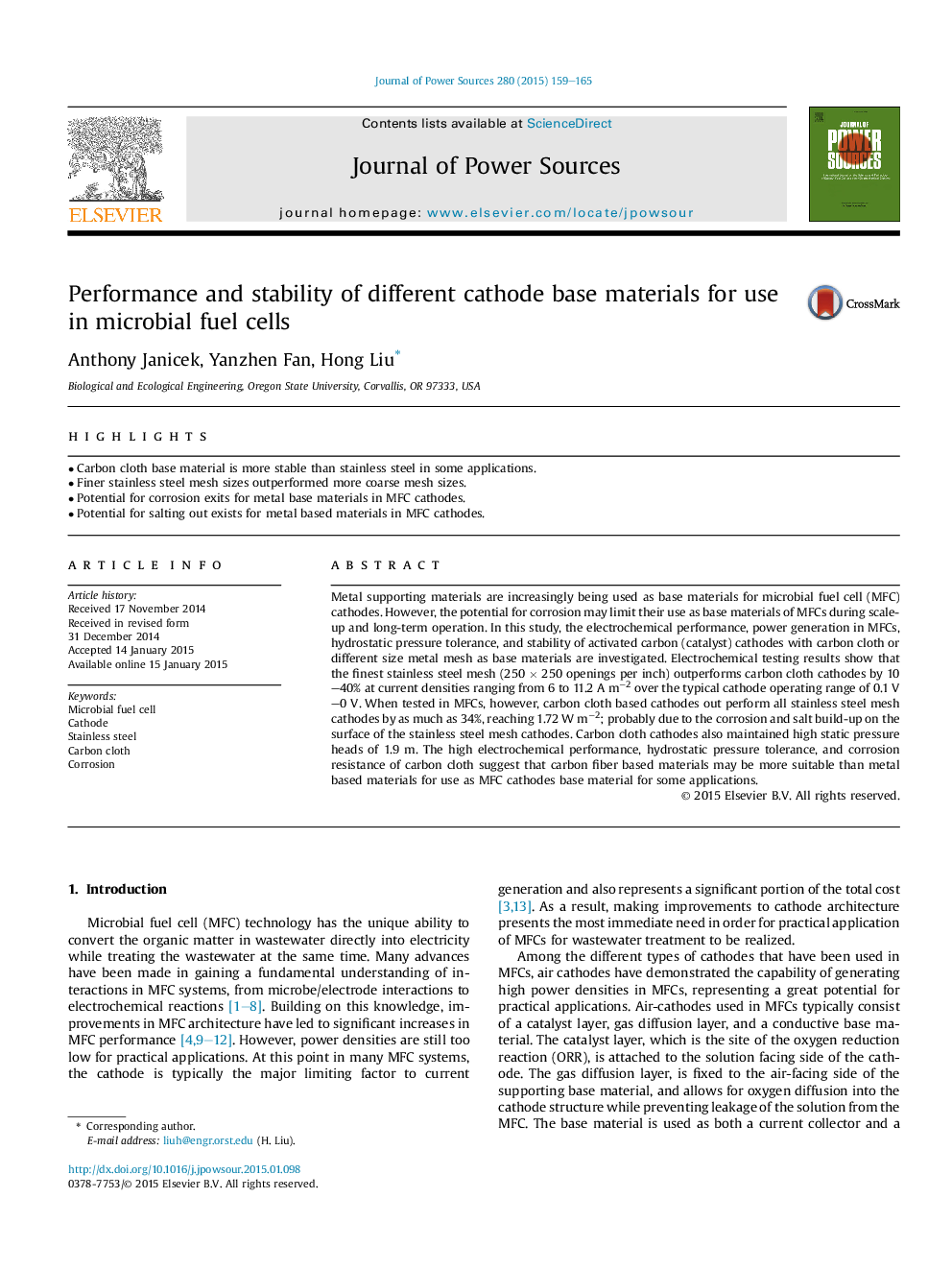| Article ID | Journal | Published Year | Pages | File Type |
|---|---|---|---|---|
| 7733033 | Journal of Power Sources | 2015 | 7 Pages |
Abstract
Metal supporting materials are increasingly being used as base materials for microbial fuel cell (MFC) cathodes. However, the potential for corrosion may limit their use as base materials of MFCs during scale-up and long-term operation. In this study, the electrochemical performance, power generation in MFCs, hydrostatic pressure tolerance, and stability of activated carbon (catalyst) cathodes with carbon cloth or different size metal mesh as base materials are investigated. Electrochemical testing results show that the finest stainless steel mesh (250Â ÃÂ 250 openings per inch) outperforms carbon cloth cathodes by 10-40% at current densities ranging from 6 to 11.2Â AÂ mâ2 over the typical cathode operating range of 0.1Â V-0Â V. When tested in MFCs, however, carbon cloth based cathodes out perform all stainless steel mesh cathodes by as much as 34%, reaching 1.72Â WÂ mâ2; probably due to the corrosion and salt build-up on the surface of the stainless steel mesh cathodes. Carbon cloth cathodes also maintained high static pressure heads of 1.9Â m. The high electrochemical performance, hydrostatic pressure tolerance, and corrosion resistance of carbon cloth suggest that carbon fiber based materials may be more suitable than metal based materials for use as MFC cathodes base material for some applications.
Related Topics
Physical Sciences and Engineering
Chemistry
Electrochemistry
Authors
Anthony Janicek, Yanzhen Fan, Hong Liu,
